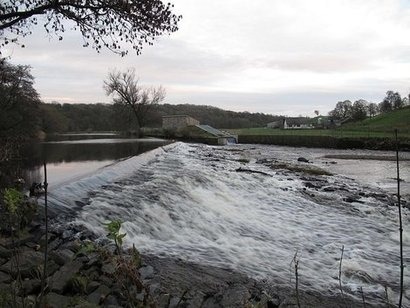
A new report by BiGGAR Economics, commissioned by the BHA and published on Wednesday (6th March), estimates that in 2022 alone, the volume of hydropower produced in the UK reduced the wholesale cost of energy by £1.1 billion, equivalent to £38.50 per household.
There is currently around 2 gigawatts (GW) of traditional hydropower being utilised across the UK, excluding pumped storage hydro, and there is potential to develop and build an additional 1GW of new hydropower.
“It’s disappointing, frustrating and mystifying that the Chancellor has failed to ride a hydro wave which would help slash sky high consumer bills, create jobs, and help cut the UK’s carbon emissions” said Kate Gilmartin, CEO of the British Hydropower Association, who recently gave evidence to both the Environmental Audit and Energy Security and Net Zero select committees. “This was a golden opportunity to bring hydropower fully into the UK’s future, reliable, renewable energy mix and the government has failed to grasp it. As our new report from BiGGAR Economics shows, hydropower can help support the UK’s strategic ambitions, contribute to Net Zero, reduce reliance on energy imports and produce the most energy when demand is high, in winter. There’s still nothing in current government policy which brings forward renewable generation at anything less than five megawatts. Ministers are tunnel-focused on large scale generation connected at the transmission grid which doesn’t resolve local grid issues or enable local energy solutions that can really help reduce bills for consumers.”
The BiGGAR Economics report - “The Socio-economic impact of Hydropower in the UK” - suggests that building an additional 1GW of hydropower, via new small scale local hydro projects and upgrading existing facilities, would require £5.5 billion investment over 15 years, with £4.2 billion worth of contracts going to UK firms and the creation of 4,140 jobs.
It is estimated that the development and construction phase could support up to £2.3 billion Gross Value Added (GVA) across Scotland, £135 million GVA in Wales and £2.3 billion GVA across England.
Last month, the BHA published its manifesto ahead of the UK general election in order to persuade politicians of all parties to invest in hydropower as a crucial part of the UK’s future energy mix.
The BHA is calling for:
Policy support that will allow 1GW Hydropower deployment through changes to the Contracts for Difference (CfD) scheme, including a strike price of £140/MWh.
A Hydropower CfD ring-fenced pot, in order to replace gas peaking plant.
An approach that moves to “Enhanced” Levelised Cost of Energy, which considers wider whole systems benefits.
For additional information:

